How good coffee gets to you and the Rwandan communities it supports
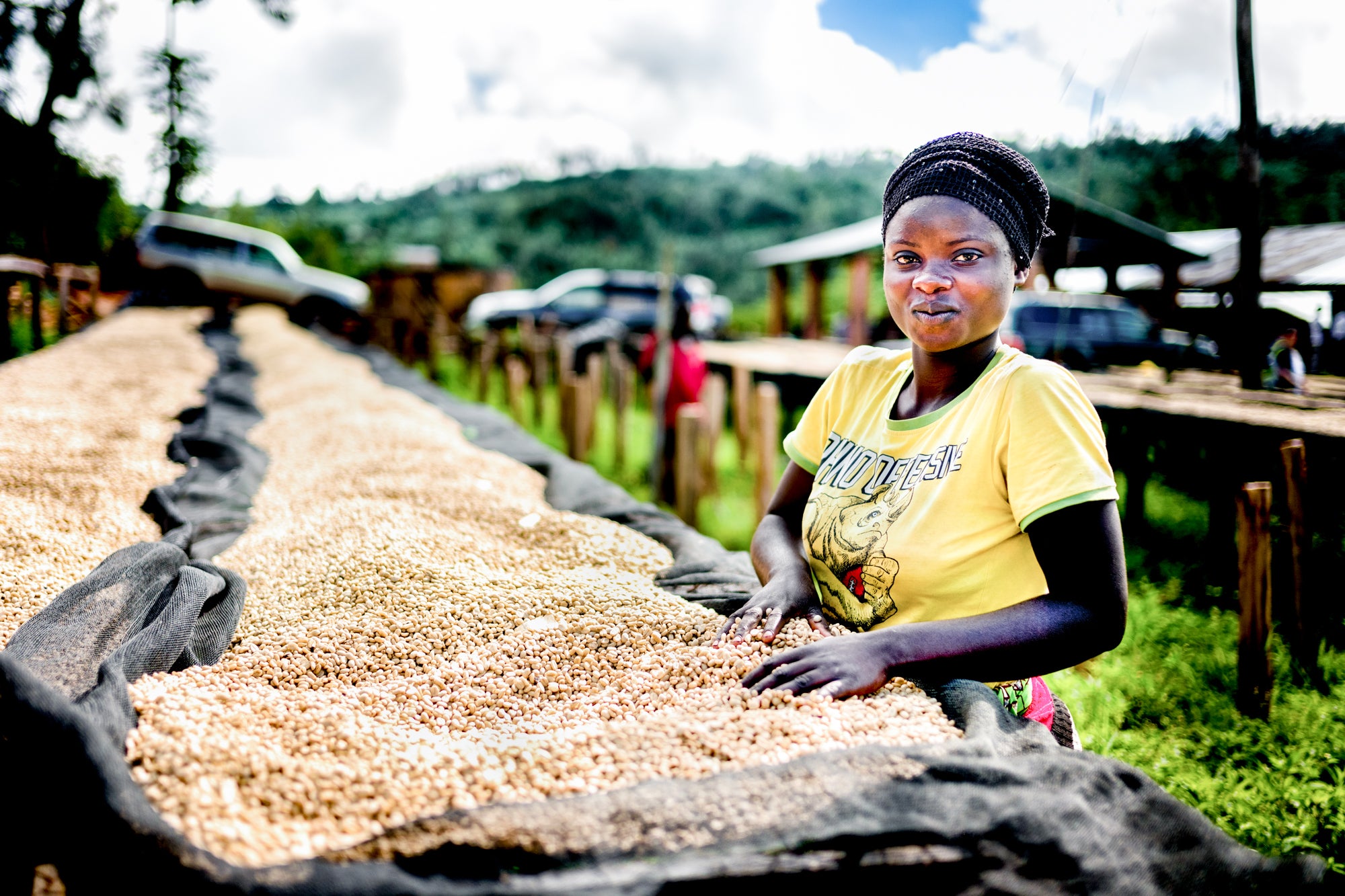
Your support helps us to tell the story
From reproductive rights to climate change to Big Tech, The Independent is on the ground when the story is developing. Whether it's investigating the financials of Elon Musk's pro-Trump PAC or producing our latest documentary, 'The A Word', which shines a light on the American women fighting for reproductive rights, we know how important it is to parse out the facts from the messaging.
At such a critical moment in US history, we need reporters on the ground. Your donation allows us to keep sending journalists to speak to both sides of the story.
The Independent is trusted by Americans across the entire political spectrum. And unlike many other quality news outlets, we choose not to lock Americans out of our reporting and analysis with paywalls. We believe quality journalism should be available to everyone, paid for by those who can afford it.
Your support makes all the difference.Like many people, I enjoy a nice cup of coffee. The act of taking a few minutes out of your day to swallow a few sips has proven to be so popular among people from a wide variety of cultures over the world to the point that in the USA alone an estimated 146 billion cups are consumed yearly.
To sustain our thirst for coffee many of the big coffee outlets buy via a chain of brokers from mass production plantations that churn out low-grade produce at attractive prices. I went out to Rwanda with Jeremy Torz, one of the co-founders of Union Hand-Roasted Coffee to experience a different kind of coffee production process.
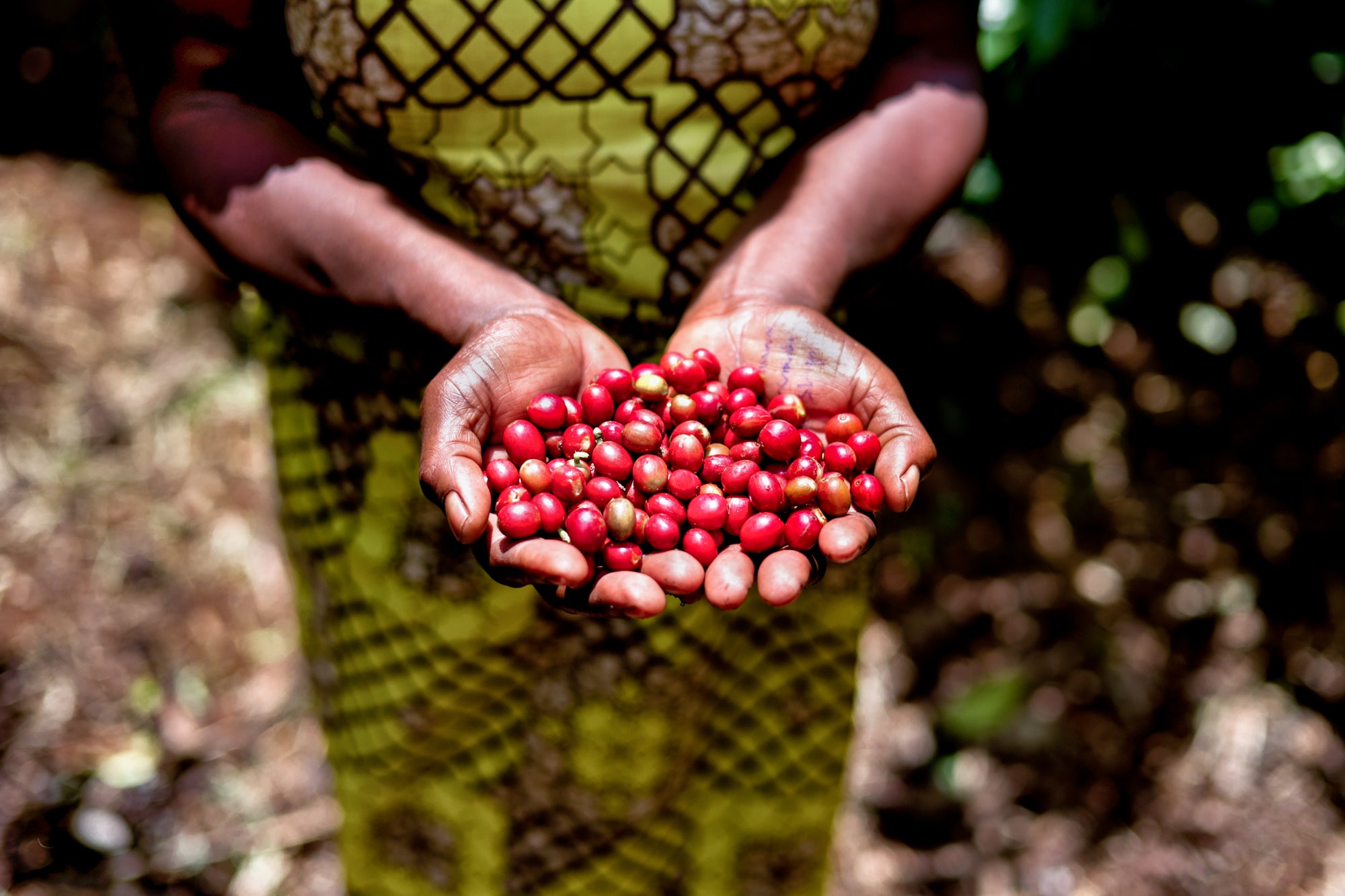
Rwandan coffee is not mass produced as we know it in the west. Rwanda is known as the land of a thousand hills. Many of the farmers grow their produce on hillsides and within lush, untamed valleys. They are often members of local coffee cooperatives who organise the processing and distribution of their produce. Only 25% of Rwanda’s 11 million people live in an urban setting, so naturally farmers make up a large percentage of the country’s workers. During our time in Rwanda I met some of the coffee farmers and cooperatives, heard about their lives and witnessed the production process from seed to cup.
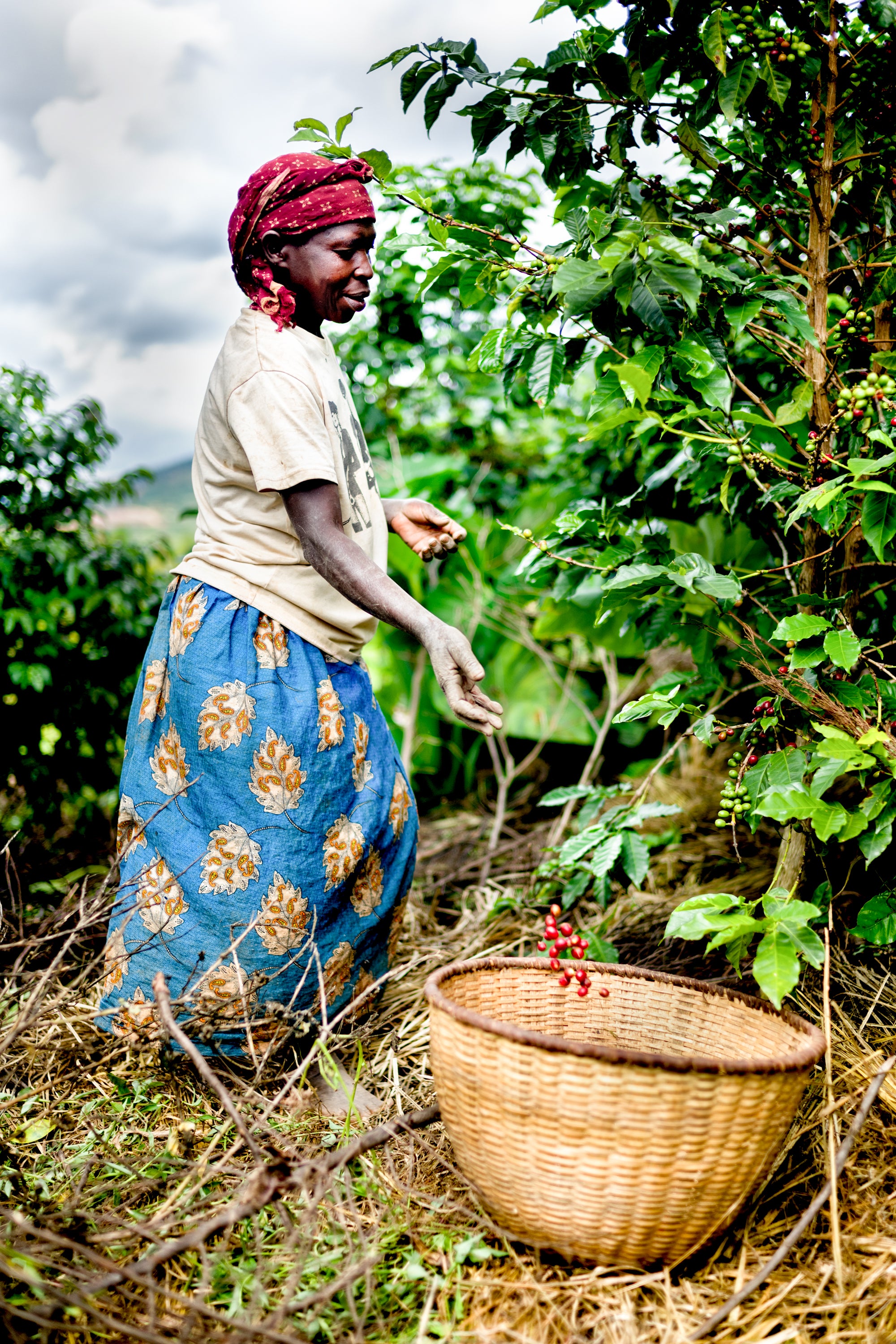
The journey begins when an unprocessed coffee bean is planted. Once this seed has been planted it will take three to four years to grow into a tree and be ready to bear fruit. This fruit produced by the tree is called the coffee cherry which turns a deep red colour when it is ready to be harvested. In Rwanda, the coffee cherries are picked by hand which is a quite a laborious process as only fully ripened fruit can be selected. High-grade coffee needs to be hand picked, and the quality is ensured through repeated selective picking. Each tree will be visited three to four times during the harvest season.
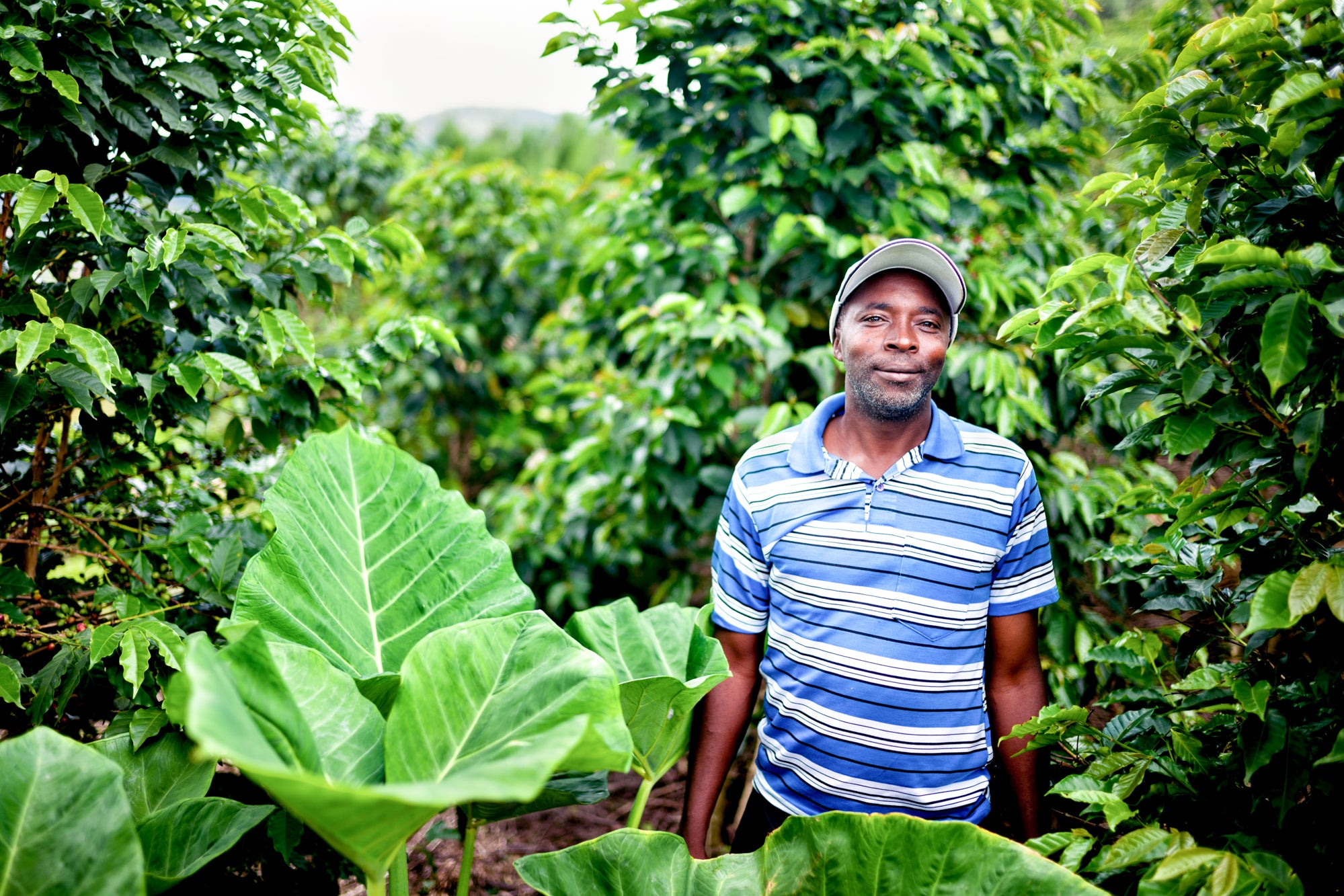
A man who knows a thing or two about this process is Bernard Nyirimana, a Rwandan coffee plantation owner who has 7,200 coffee trees. He comes from a line of coffee farmers, and tells me with pride that his son Léandre has joined the family business too.
He told me: “Coffee is our reality in Rwanda. Many (Rwandan) young people these days are changing and want jobs like they have in the west, but too many leave university with no job waiting. Rwanda has a bright future through coffee, and so do I. I plan to plant more and more trees.”


The cherries that have been picked are then processed as quickly as possible to avoid rotting. There are two different ways of processing the cherries. The dry method involves leaving the cherries to dry in the sun for several weeks. They have to be regularly maintained to avoid spoiling and are covered over night. The second process is called the wet method. It begins by separating the skin of the fruit from the bean in a pulping machine.

Once this is done, the beans are passed through water channels that separate them by their density. The beans are then left in fermentation tanks for 12-18 hours before being left to rinse in clean water for a similar amount of time.

The beans are assessed by hand for any insect damage, colour defects and size irregularities. Doing this by hand is an important part of the process for companies like Union who are striving for a high-quality final product. The remaining outer husk of the coffee bean is removed and sometimes they will receive an optional polishing.
The coffee batches are frequently tasted in a process known as cupping. Cupping allows the expert taster to evaluate the flavour characteristics of the beans and critically to see if there there are any flaws with the composition of the flavour that may affect its rating on the SCAA (Specialty Coffee Association of America) scale. This scale ranks coffees out of a hundred. Specialty coffee begins when the ranking is 80 or above. Union only purchase beans that have scored higher than 84. Multinational brands buy beans that come in at 70-75 and value coffee usually scores around 60-65 on the scale.

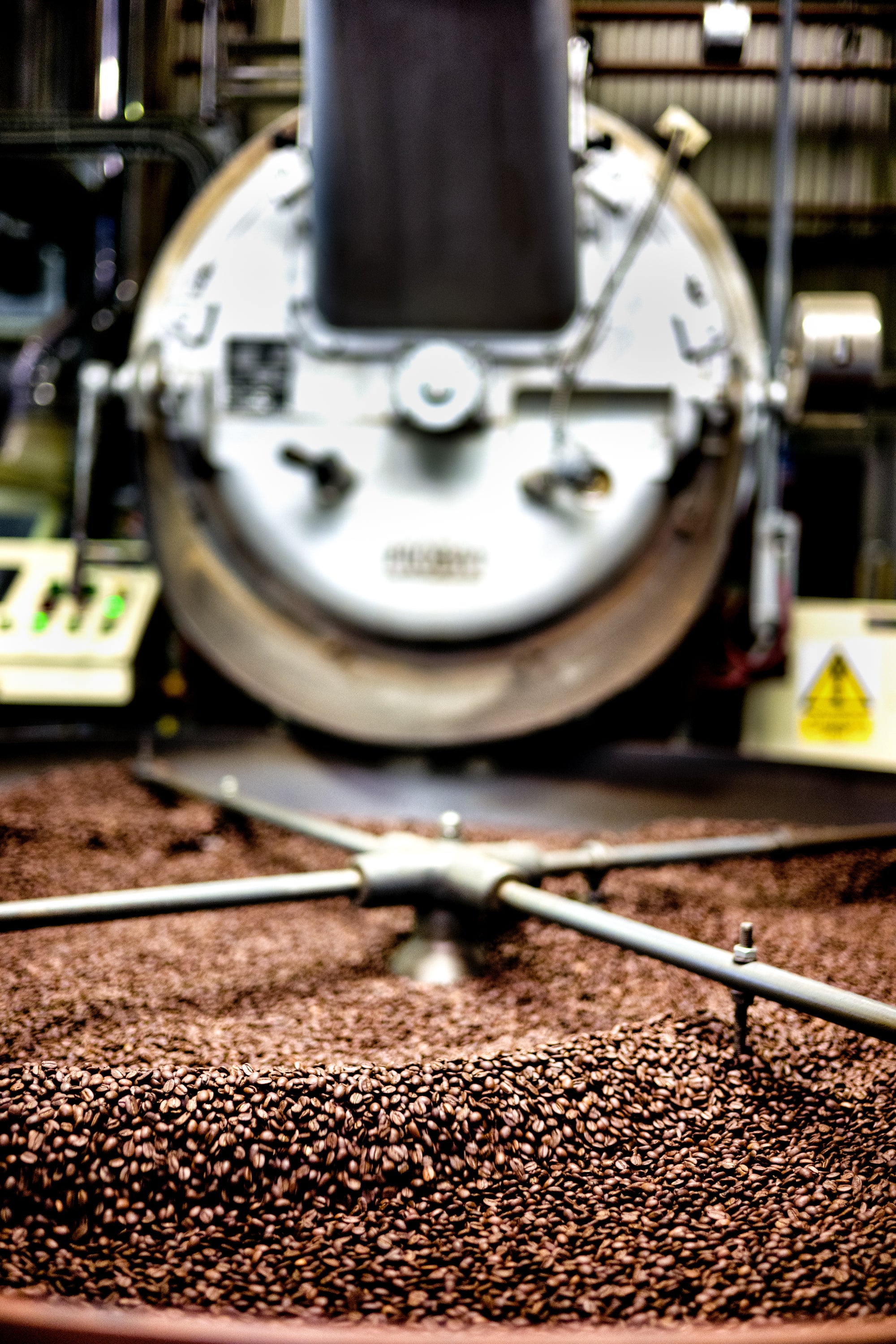
At this point, the beans are ready for exporting and roasting. Roasting is what turns the coffee into the rich dark brown colour that we are used to seeing on the counters at cafes and on our supermarket shelves. To roast a batch of coffee beans they have to be heated to around 200 degrees celsius within a drum that constantly spins to prevent them settling and burning. Union imports the beans from places like Rwanda, but roasts them on a per order basis so their customers receive a fresh product.
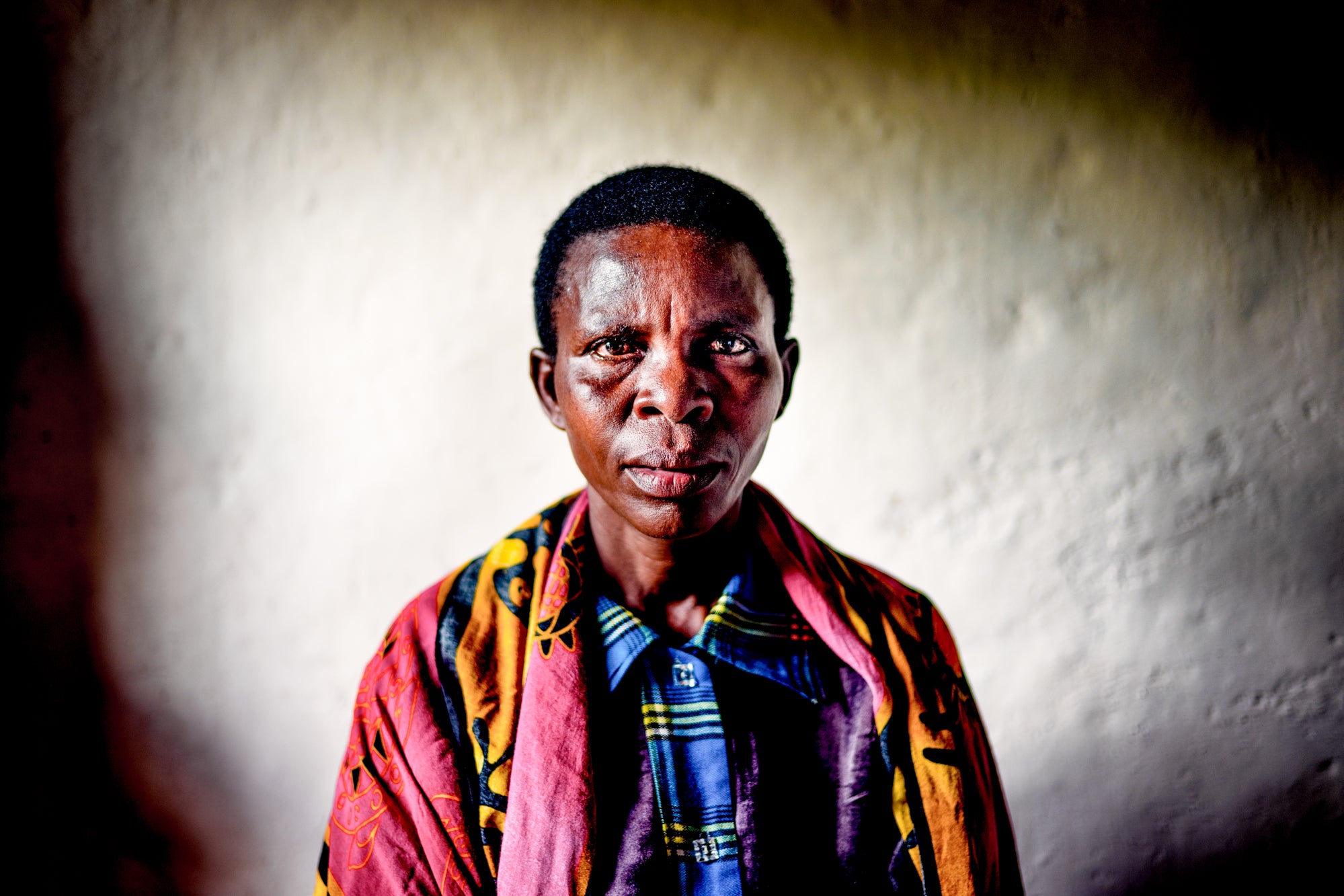
Meeting some of the farmers at their work places in Rwanda and seeing first hand how working with coffee has helped them and their families access a better quality of life really hit home how simple it is for us as consumers to make a difference in people’s lives. We can easily check the websites and information provided by UK based coffee outlets to see how much they really support the people they buy coffee from. If no information is provided, we can then ask questions or perhaps buy from a company who are transparent about their buying process, and who can be seen to be being fair.
One of the first people in Rwanda who Union established a partnership with is a woman named Venantian Mukakalisa, a mother of four, who explained movingly how her life has changed through working with a company who value her contribution.
“All this you see is from coffee (gestures around her home). My life has changed and developed so much these few years. I can pay medical insurance for myself and my children and I have the hope of life. So do my children. I can send them to school. Before the encouragement and hope was given to me (through working with coffee), I felt we had no hope to live. Now our future is very bright.”
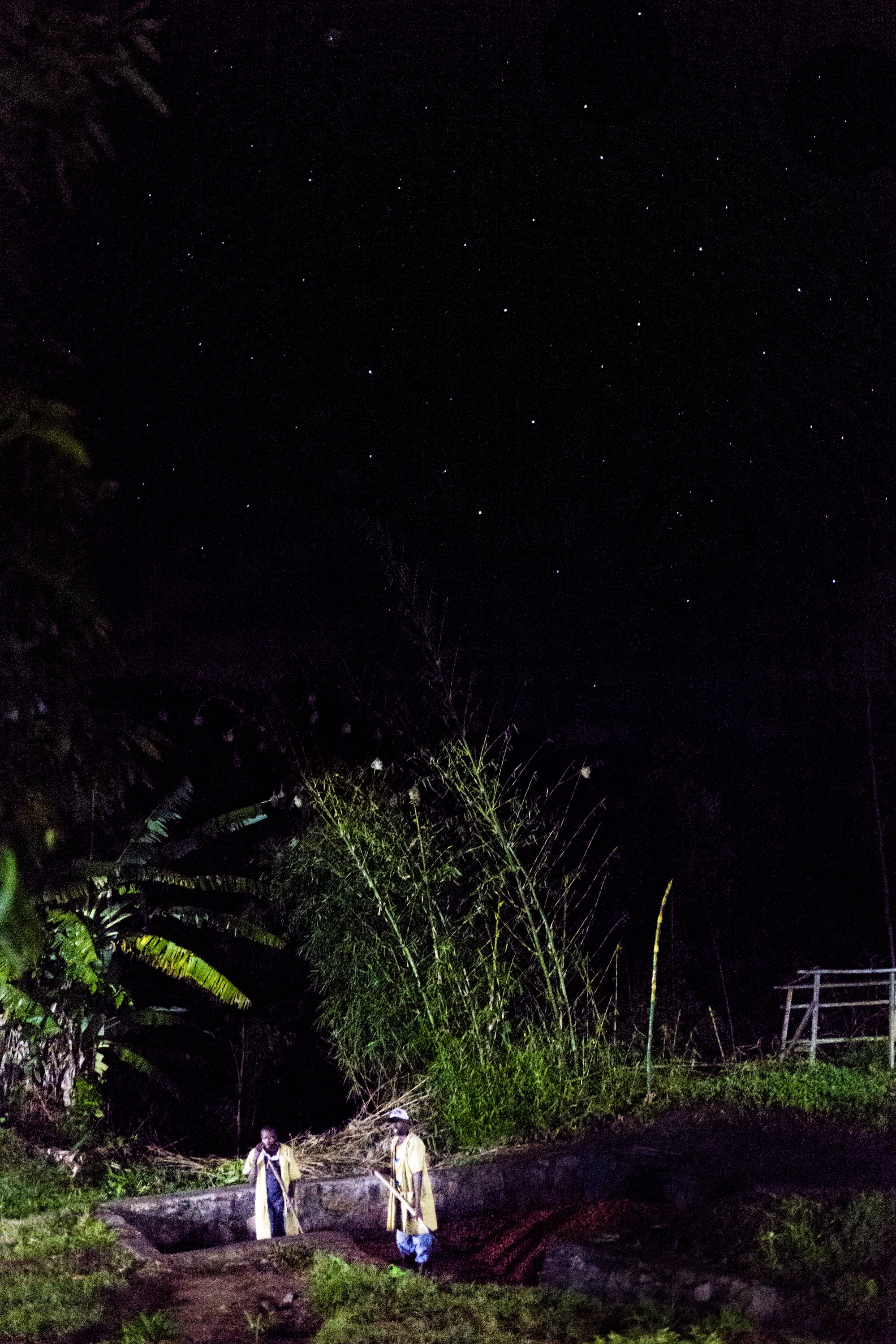
Some of the large coffee providers may publicly claim otherwise but they prioritise one thing far above all else: profit. This business model involving the bulk buying of lower grade coffee is clearly working very well for them but is not the one taken by Union, which focus on sourcing coffee from small communities of farmers. They are actively involved with supporting these communities, pay them fairly and are conscious of the environment that it grows in ensuring we can continue to enjoy coffee in the years to come.
Union first bought Rwandan coffee in 2002 a few years after the devastating genocide of 1994 that left the country in turmoil. At that time, there were few places in the world more in need of economic growth and stability than Rwanda, and the production of high-quality coffee became an important focus for the country. Unable to compete with the low-grade mass production market already in place, the plan was to become a significant presence in the boutique, top end of the market. Over time coffee sales have grown to a point where today they represent 60% of Rwanda’s export earnings, with tea sales making up a further 30%.
Companies like Union could easily source coffee at lower costs from large producers. Instead, they accept taking a hit on their margins knowing they are truly doing right by the people who they source from. This mentality is something all too rare these days, and I for one applaud them for putting down roots in developing countries and ensuring that the people they work with from the farmers to the consumers are given equal priority. It would be a great step for more companies to think about the bigger picture, and what sustainability really means, rather than concentrating on immediate financial gain.

I asked Jeremy Torz how he sees the future of Union Hand-Roasted developing.
“When we started our journey in coffee the desire to work directly with farmers was more about understanding our supply chain and how we could become better buyers of better quality coffee," he said. "The time we have spent with communities around the world has further inspired us and our excitement nowadays comes as much from seeing the pride and pleasure on the faces of coffee producers as much as the delight experienced in the cup in homes and cafes around the UK.
"We’ve never been about growth for its own sake, but rather the continual improvement in the standards of coffee offered to consumers, and now that coffee is moving from something to merely wake you up to something that can be actively selected for different flavours and experiences our excitement has been re-born. There is no doubt that we will continue to try and reach out to more consumers and by doing this, we can represent more producers and extend the benefits that our carefully structured Union Direct Trade program can bring to both ends of the supply chain. The work we have done in Rwanda tells us that across the three cooperatives we work with, we have had a positive impact on over 25,000 people. We are still a small commercial business, but hopefully one that continues to operate with integrity and as we continue to grow we can continue to stimulate the UK coffee scene as well as those communities that provide our much-loved brew.”
Read more about coffee from Rwanda | See more of Alan's photography
Join our commenting forum
Join thought-provoking conversations, follow other Independent readers and see their replies
Comments